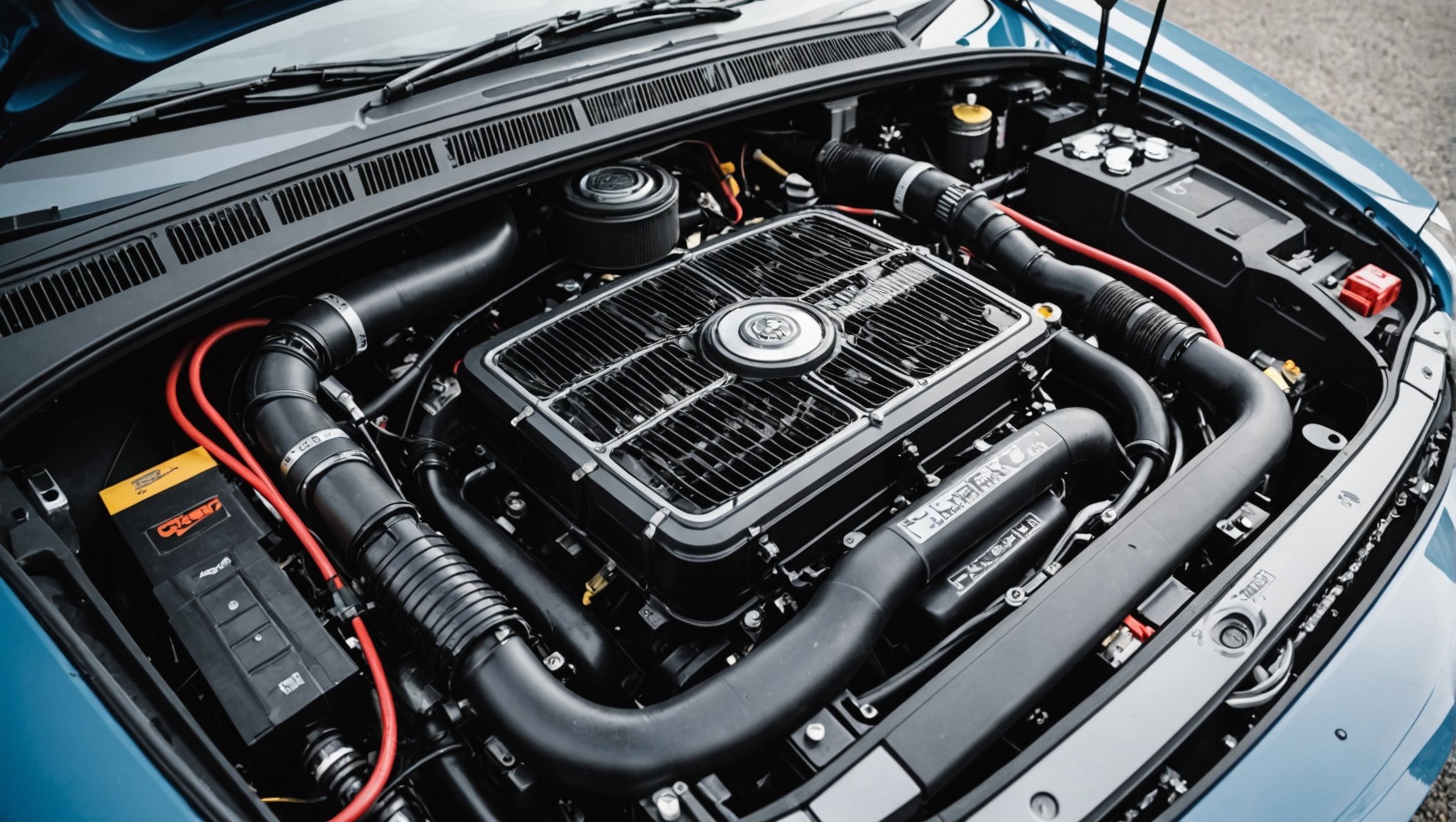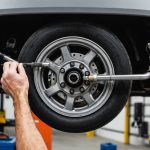Your car’s cooling system significantly impacts its performance, especially in the UK’s unpredictable weather. An efficient cooling system prevents overheating, extends engine life, and ensures optimal fuel efficiency. Understanding its intricacies can save you from costly repairs. This guide offers essential tips for mastering your vehicle's cooling system. Prepare your car to thrive in both sunny and wet conditions, ensuring peak performance all year round.
Understanding Your Car's Cooling System
The cooling system is essential for maintaining your vehicle's performance. It consists of several key components, including the radiator, water pump, thermostat, and coolant. Each part plays a crucial role in regulating the engine's temperature, ensuring it operates efficiently and prevents overheating.
Topic to read : Shielding Your Car”s Finish: Essential Tips to Combat the Harsh UK Coastal Climate
In different weather conditions, the cooling system's functionality becomes even more critical. During hot weather, the system must work harder to dissipate excess heat. The radiator and coolant work together to transfer heat away from the engine, while the thermostat regulates the flow of coolant. Conversely, in colder climates, the system prevents the engine from freezing by circulating warm coolant.
Understanding the basics of your car's cooling system can help you maintain its efficiency. Regular maintenance, such as checking coolant levels and inspecting hoses for leaks, is vital. By keeping the cooling system in top condition, you ensure the longevity and reliability of your vehicle. Proper care also enhances fuel efficiency and reduces the risk of costly repairs.
Topic to read : Premium paint protection film solutions in kent
Common Cooling System Issues
Understanding potential cooling system problems is crucial for preventing serious damage to your vehicle. One common issue is identifying leaks, which can often be traced back to worn hoses or a damaged radiator. Leaks can lead to a significant drop in coolant levels, causing your engine to overheat.
Identifying Leaks and Their Causes
Leaks in the cooling system are typically caused by cracked hoses, faulty gaskets, or a compromised radiator. Regular inspection can help spot these issues early. Look for puddles of coolant under your car or a sweet smell, which is a telltale sign of a leak.
Signs of Overheating and What They Indicate
Overheating is a critical issue that should never be ignored. If your temperature gauge rises or you see steam from the engine, it indicates the cooling system is not effectively regulating the engine's temperature. This could result from low coolant levels or a malfunctioning thermostat.
Impacts of Low Coolant Levels
Low coolant levels can severely impact your engine's performance. Without sufficient coolant, the engine cannot dissipate heat effectively, leading to overheating and potential engine failure. Regularly check and maintain coolant levels to avoid these problems and ensure your vehicle runs smoothly.
Maintenance Tips for Optimal Performance
To keep your car's cooling system running smoothly, regular maintenance is key. Cooling system maintenance not only ensures optimal performance but also prevents costly repairs down the line.
Regular Coolant Level Checks and Top-Ups
Checking your coolant levels frequently is essential. Low levels can lead to overheating, so make it a habit to inspect and top up the coolant as needed. Always use the recommended type of coolant for your vehicle to ensure compatibility and effectiveness.
Importance of Flushing the Coolant System
Flushing the coolant system is another critical maintenance task. Over time, contaminants can build up, reducing the system's efficiency. By flushing the system, you remove these impurities, allowing the coolant to circulate freely and keep the engine cool.
Checking and Replacing Hoses and Clamps
Hoses and clamps are vital components of the cooling system. Regularly inspect them for signs of wear, such as cracks or leaks. Replacing worn hoses and clamps promptly can prevent leaks and maintain the system's integrity. This proactive approach helps avoid engine overheating and ensures your vehicle remains reliable.
Climate-Specific Cooling System Strategies
Adapting your vehicle's cooling system maintenance to the UK's unique climate can significantly enhance performance. The UK's weather, with its frequent shifts, requires tailored strategies to ensure your car remains reliable throughout the year.
Adjusting Maintenance Schedules Based on Seasonal Changes
In the UK, seasonal changes necessitate adjustments in your maintenance schedule. During winter, it's crucial to check the antifreeze concentration in your coolant to prevent the engine from freezing. Conversely, in summer, focus on ensuring optimal coolant levels to manage higher temperatures effectively.
Choosing the Right Coolant for UK Climates
Selecting the appropriate coolant is vital for handling the UK's variable climate. Look for a coolant that offers both antifreeze and corrosion protection, as this will safeguard the engine in both cold and warm conditions. Always refer to your vehicle's manual for the recommended type.
Managing Temperature Extremes: Winter vs Summer
The UK's climate can swing from cold winters to warm summers, impacting the cooling system's efficiency. In winter, ensure the thermostat operates correctly to maintain engine warmth. In summer, verify that the radiator fan is functioning to aid in heat dissipation. Regular checks can prevent temperature-related issues and keep your vehicle running smoothly.
Troubleshooting the Cooling System
Understanding cooling system troubleshooting can save time and money. Start by diagnosing potential failures through a systematic approach. Begin with a visual inspection: check for visible leaks, worn hoses, and coolant levels. Next, ensure the radiator cap is secure and examine the thermostat for proper function.
Step-by-Step Guide for Diagnosing Cooling System Failures
- Visual Inspection: Look for obvious signs of damage or leaks.
- Coolant Level Check: Ensure the reservoir has the correct amount of coolant.
- Radiator and Thermostat: Confirm the radiator is free of obstructions and the thermostat opens at the right temperature.
Common Tools Needed for DIY Troubleshooting
To effectively troubleshoot, you'll need a few basic tools:
- Thermometer: To measure coolant temperature.
- Pressure Tester: For checking the cooling system's pressure.
- Multimeter: Useful for testing electrical components like fans.
When to Seek Professional Help
If the issue persists after these checks, or if you're uncomfortable performing them, it's time to consult a professional. Persistent overheating or complex issues like a faulty water pump require expert attention to prevent further damage.
Best Practices for Long-Term Care
Ensuring long-term cooling system care involves creating a comprehensive maintenance checklist. This checklist should include regular inspections of key components such as the radiator, hoses, and clamps. By systematically examining these parts, you can identify potential issues before they become serious problems.
Creating a Cooling System Maintenance Checklist
A well-structured checklist is essential for effective maintenance. Include tasks like checking coolant levels, inspecting for leaks, and verifying the thermostat's operation. Regularly updating this list ensures no aspect of the cooling system is overlooked.
Importance of Regular Inspections and Servicing
Frequent inspections are crucial for maintaining your vehicle's cooling system. Regular servicing helps detect wear and tear early, preventing costly repairs. Routine checks of the system's components ensure optimal performance and longevity.
Keeping Records of Maintenance and Repairs
Maintaining detailed records of all maintenance and repairs is vital. These records provide a history of the cooling system's condition and help track patterns or recurring issues. They also serve as a valuable reference for future servicing, ensuring continuity in care.
Upgrading Your Cooling System
Enhancing your vehicle's cooling system can significantly improve its performance. One effective upgrade is investing in high-performance radiators and fans. These components offer superior heat dissipation compared to standard parts, ensuring your engine remains cool even under demanding conditions. High-performance radiators often feature increased surface area and enhanced airflow, while advanced fans provide more efficient cooling, reducing the risk of overheating.
When considering cooling system upgrades, evaluating aftermarket parts is crucial. Aftermarket components can offer improved durability and efficiency. However, it's essential to research and select parts from reputable manufacturers to ensure quality and reliability. Look for reviews and performance data to make informed decisions.
Compatibility is a critical factor when upgrading your cooling system. Ensure that any new parts you choose are compatible with your vehicle's make and model. Mismatched components can lead to installation issues or reduced performance. Consult your vehicle's manual or seek professional advice to verify compatibility before proceeding with upgrades.
By carefully selecting and installing cooling system upgrades, you can enhance your vehicle's performance, prevent overheating, and extend the lifespan of your engine.
Understanding Coolant Types and Their Uses
Choosing the right types of coolants for your vehicle is essential for optimal performance and engine protection. Coolants are generally classified into two main categories: ethylene glycol and propylene glycol.
Ethylene glycol is the most common type, known for its excellent heat transfer capabilities. However, it is highly toxic and requires careful handling. On the other hand, propylene glycol is less toxic and considered more environmentally friendly, though it may offer slightly less effective cooling properties.
Using the manufacturer-recommended coolant is crucial. Each vehicle is designed with specific cooling requirements, and the wrong coolant can lead to inefficiencies or even damage. Always refer to your vehicle's manual to ensure compatibility.
When selecting a coolant, consider the specific conditions your vehicle will face. For colder climates, a coolant with higher antifreeze properties is advisable, while in warmer areas, focus on heat dissipation capabilities. Additionally, check for additives that prevent corrosion and scale buildup, as these enhance the coolant's effectiveness and protect the engine components.
Warning Signs of Cooling System Failure
Recognising cooling system warning signs promptly can prevent severe engine damage. Dashboard alerts are the first indicators; the temperature gauge or a coolant warning light may signal overheating or low coolant levels. These alerts should not be ignored, as they often precede more significant failures.
Unusual smells, sounds, or leaks are other critical warning signs. A sweet odour might indicate a coolant leak, while a grinding noise could suggest a failing water pump. Leaks often manifest as puddles under the vehicle, hinting at compromised hoses or a damaged radiator. These symptoms require immediate attention to avoid escalating issues.
The importance of immediate action cannot be overstated. Ignoring these signs can lead to engine overheating, potentially causing irreversible damage. Upon noticing any warning signs, it's crucial to stop driving and assess the situation. Check coolant levels and inspect for visible leaks. If the problem persists, seek professional assistance promptly. Addressing these issues early can save on costly repairs and ensure your vehicle's reliability.
Resources for Further Learning
Expanding your knowledge on cooling systems can be incredibly beneficial for both novice and experienced car enthusiasts. There are numerous resources available to deepen your understanding and skills.
Recommended Books and Online Courses
For those who prefer reading, books like "Automotive Cooling System Basics" provide comprehensive insights into vehicle maintenance. Additionally, online platforms such as Coursera and Udemy offer courses specifically focused on cooling systems and automotive care, catering to different learning preferences.
Useful Websites and Forums
Engaging with online communities can be a valuable resource. Websites like CarTalk and forums such as Reddit's r/cars offer a wealth of information and a platform to discuss specific cooling system issues. These forums are excellent for exchanging tips and gaining practical advice from fellow enthusiasts.
Local Workshops or Classes
For hands-on learning, consider enrolling in local workshops or classes. Many community colleges and technical schools offer courses on vehicle maintenance, providing an opportunity to apply theoretical knowledge in a practical setting. These classes often cover various aspects of cooling systems, from basic maintenance to troubleshooting techniques, enhancing your expertise.
















